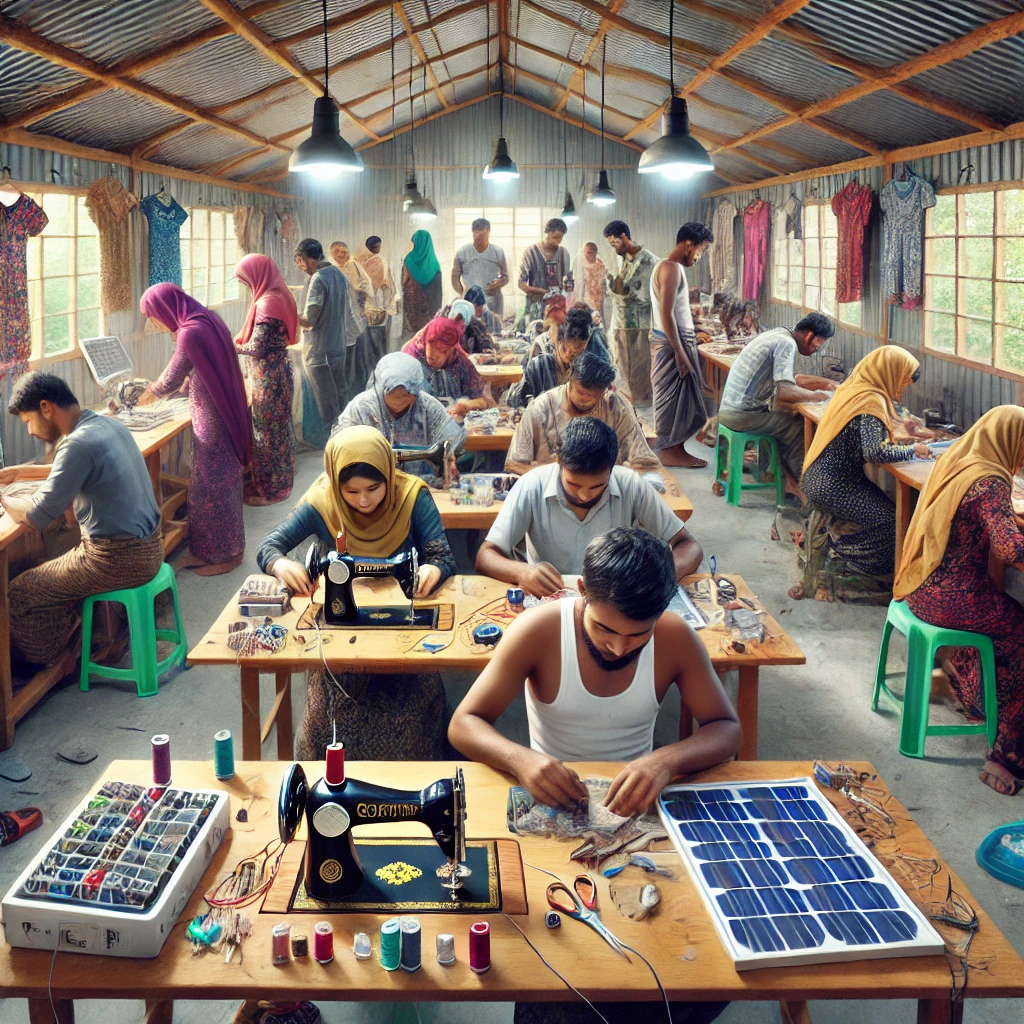Thailand Grants Long-Staying Myanmar Refugees Right to Work, Earning UNHCR Praise
Thailand currently hosts about 81,000 refugees from Myanmar in temporary shelters along the Thai-Myanmar border.

The UN Refugee Agency (UNHCR) has welcomed a landmark resolution adopted by the Royal Thai Government that will allow long-staying refugees from Myanmar to work legally in Thailand, marking a turning point in the country’s refugee policy and offering new hope for tens of thousands of displaced people.
A Lifeline for 81,000 Refugees
Thailand currently hosts about 81,000 refugees from Myanmar in temporary shelters along the Thai-Myanmar border. Many have been living in these camps for decades, with some having arrived during periods of conflict as far back as the 1980s and 1990s. Around 47% of the refugee population were born in the shelters, having known no life beyond their confines.
Until now, these communities have remained almost entirely dependent on humanitarian assistance, with restricted freedom of movement and little opportunity to contribute economically. The new resolution will allow them to seek lawful employment, offering a path toward self-reliance and reduced dependence on aid.
“A Turning Point”
UNHCR’s Representative in Thailand, Tammi Sharpe, described the move as historic:
“For too long, protracted exile felt like an unending wait. Today marks a turning point. With this policy shift, Thailand transforms hosting refugees into an engine of growth – for refugees, for host communities and for the nation as a whole.”
Sharpe emphasized that unlocking the potential of refugees would benefit both the displaced population and Thailand itself:
“Refugees will now be able to support themselves and their families, stimulate local economies through increased consumption, and promote job creation, contributing to national GDP growth and economic resilience.”
Global and Regional Significance
The policy change comes at a critical moment, as global humanitarian aid budgets face severe funding cuts, leaving many displaced populations worldwide at risk of losing life-saving support. By enabling refugees to earn livelihoods, Thailand is creating a sustainable solution that reduces long-term dependency on aid.
The move also reinforces Thailand’s reputation as a regional leader in refugee protection. For more than 50 years, Thailand has provided shelter to refugees from neighboring countries. This new resolution could now serve as a benchmark for rights-based refugee solutions in Asia, demonstrating how countries can align humanitarian obligations with national development goals.
Economic and Social Impact
Allowing refugees to work legally could have far-reaching benefits:
-
Household resilience: Refugees can earn income to meet their own needs, reducing vulnerability.
-
Local economic growth: New consumers and workers in local economies will stimulate demand for goods and services.
-
Skills contribution: Many refugees have skills in trades, agriculture, and services that can support local industries.
-
National growth: Expanded labor force participation contributes to GDP growth and economic resilience.
Experts note that when refugees are granted the right to work, they often create jobs as entrepreneurs, pay taxes, and bring innovation to underserved markets.
Challenges Ahead
While the resolution is an important breakthrough, it currently applies to a limited number of refugees. UNHCR continues to advocate for the inclusion of all refugees in the right-to-work framework, ensuring that no group remains excluded from opportunities for self-reliance.
Implementation will also require coordination between government agencies, employers, development partners, and humanitarian actors to ensure refugees receive the documentation, training, and protection necessary to thrive in the labor market.
UNHCR’s Role
UNHCR has pledged to support the Thai government in the rollout of this policy, working with development partners, NGOs, and private sector stakeholders to provide technical assistance, job-matching initiatives, and capacity-building programmes.
The agency emphasized that the policy, if fully realized, could serve as a model for other countries facing long-term refugee situations, balancing humanitarian protection with economic opportunity.










